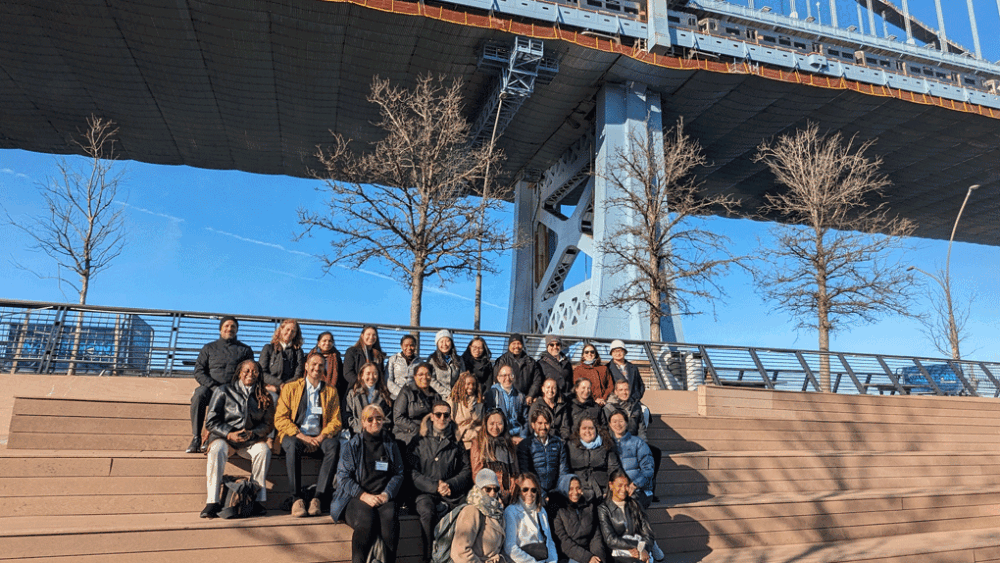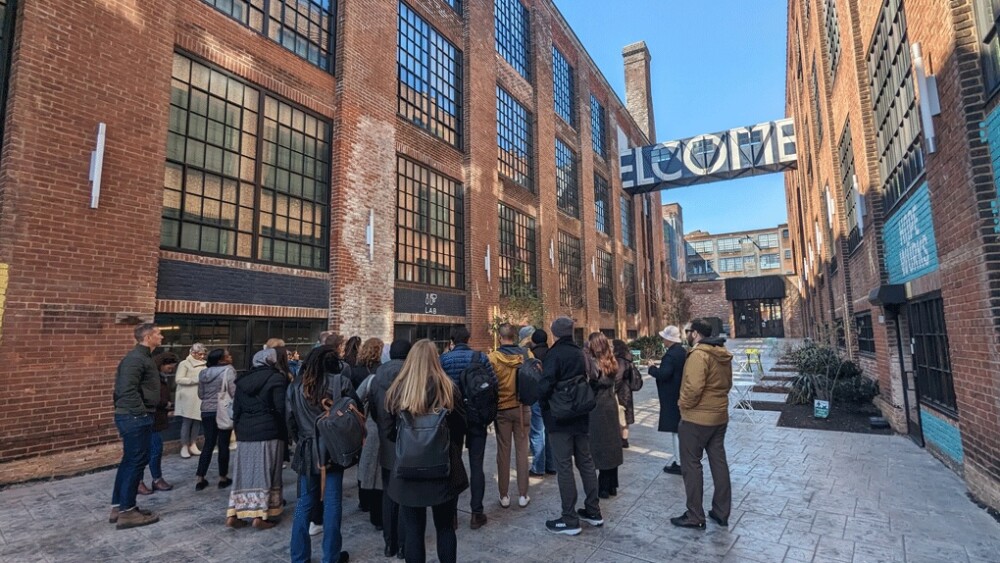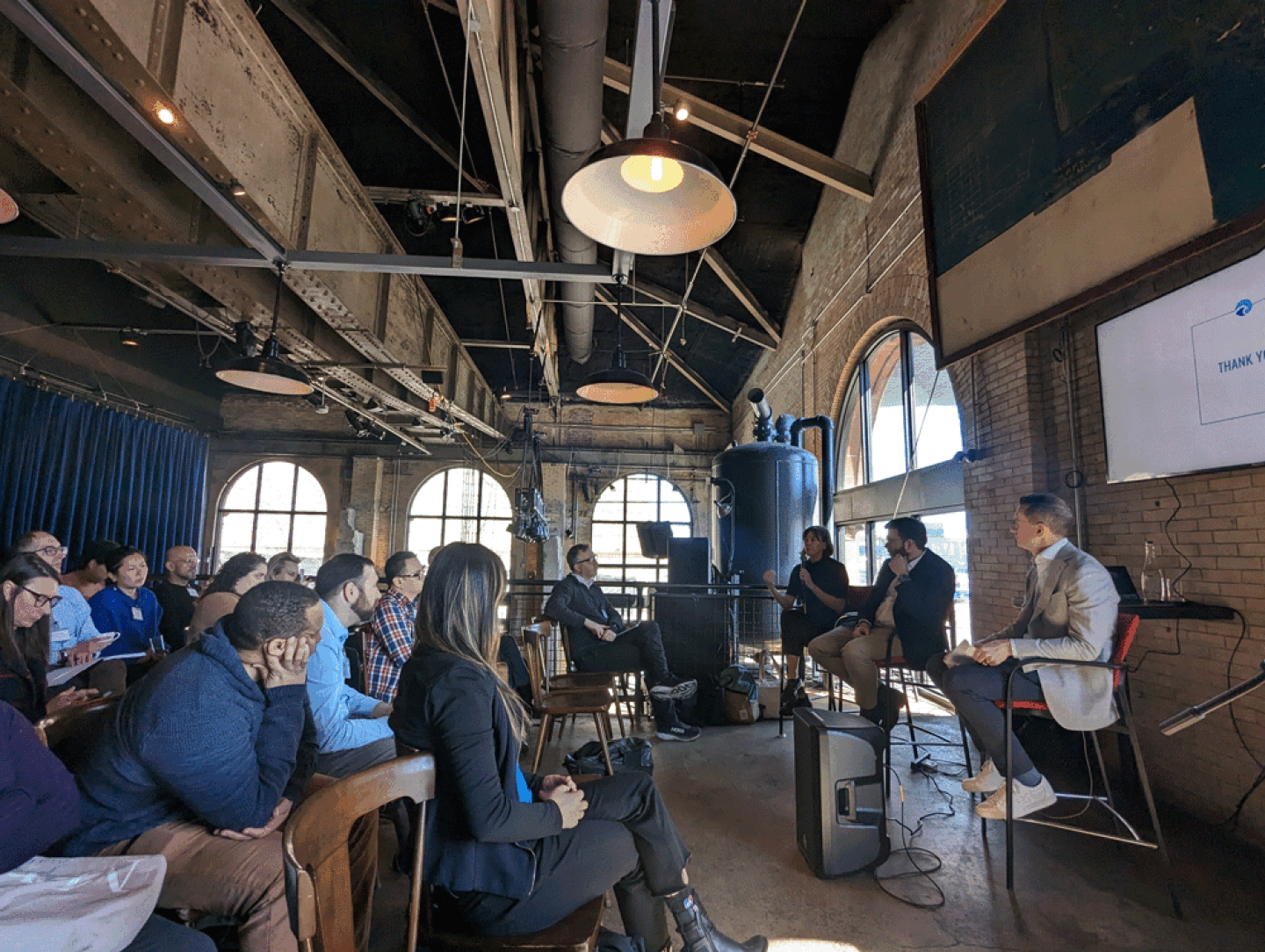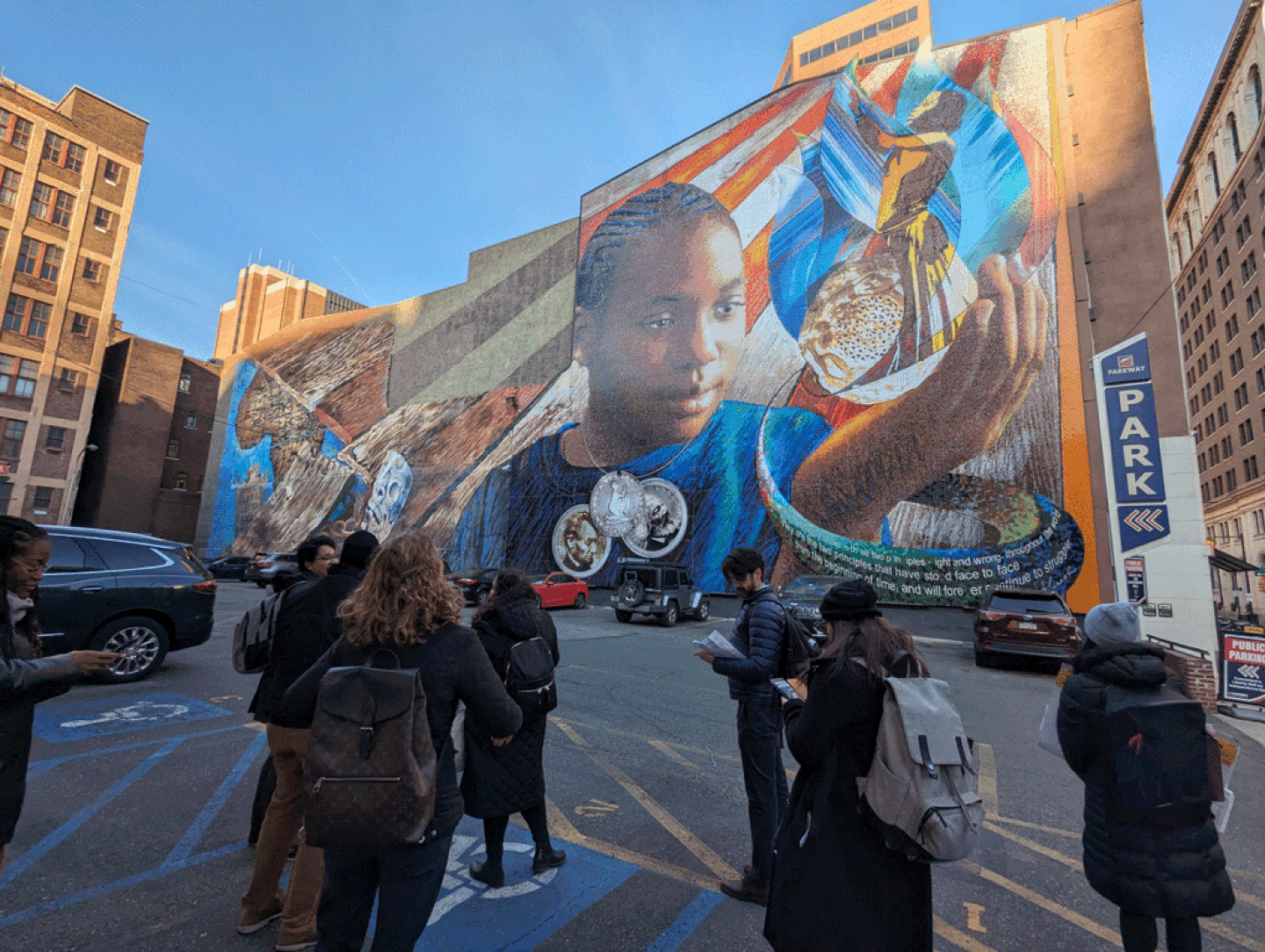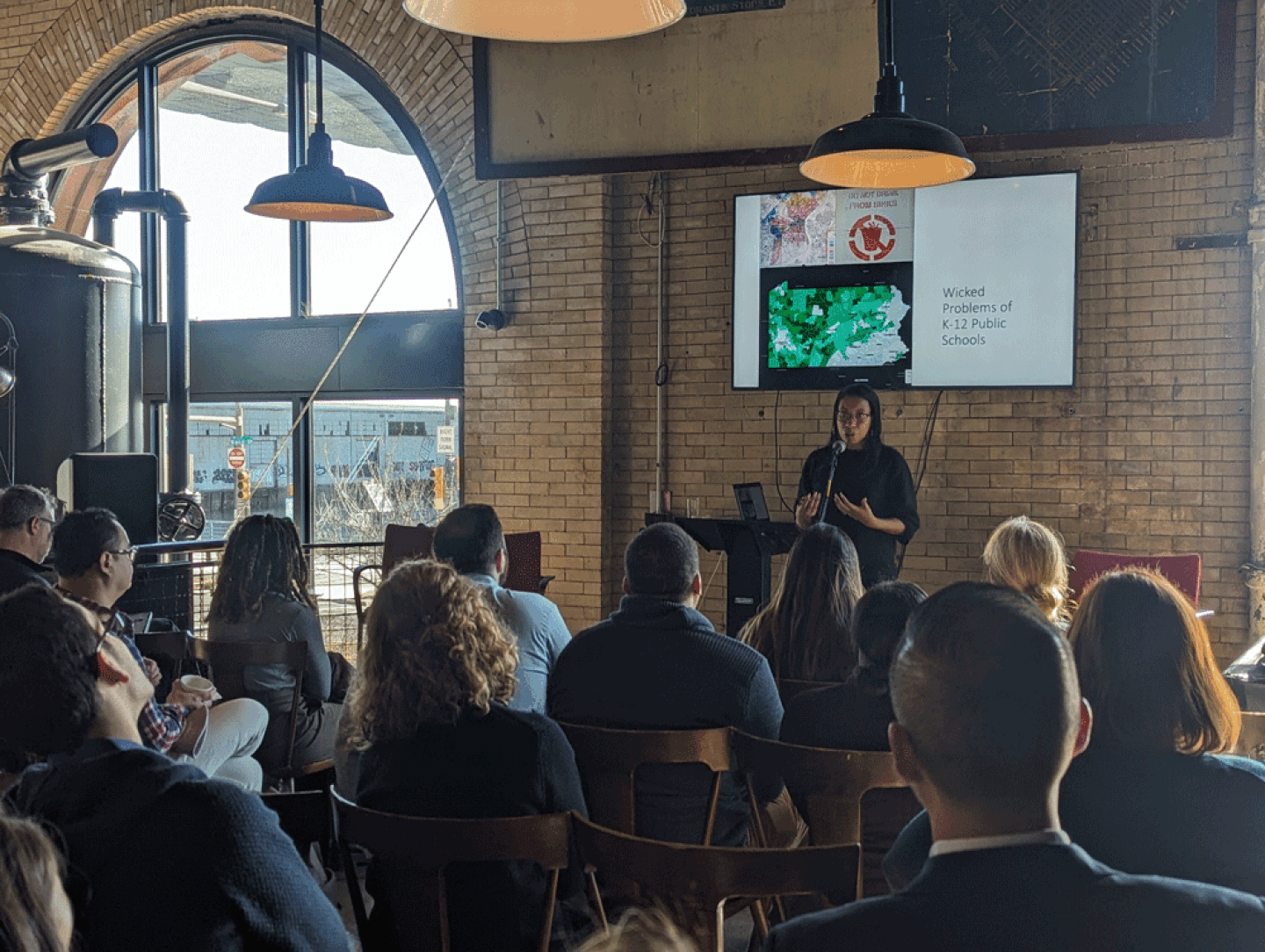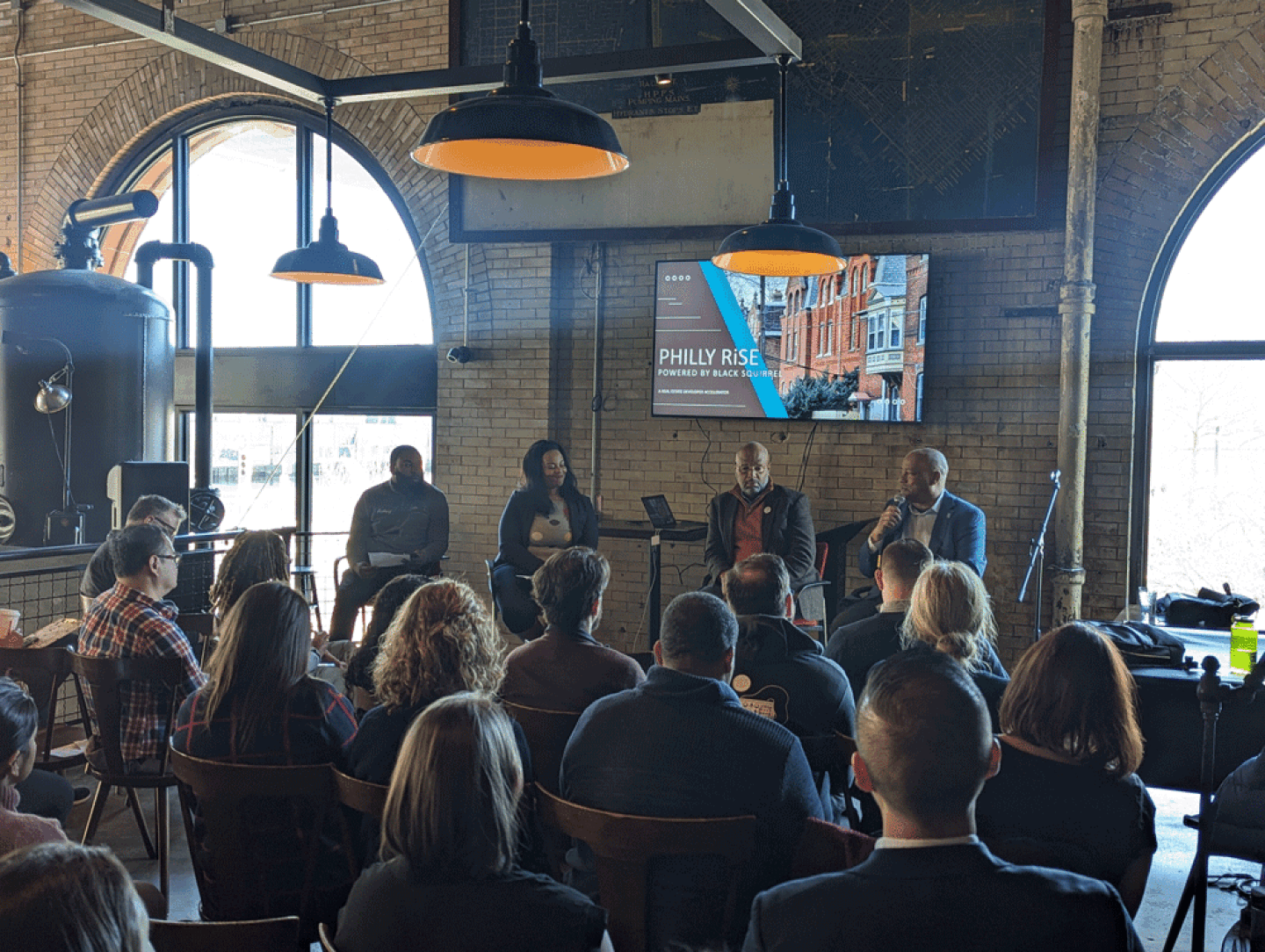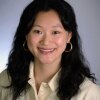Since 2017, the ULI Health Leaders Network has served as a platform for cross-sector professionals looking to grow their leadership skills, make meaningful connections, and drive progress in health and social equity. Welcoming thirty new members to the Network, Cohort 7 joins a global community of practice of over 200 professionals. Spanning 24 cities and 6 different countries, the new cohort represents a diverse range of real estate, land use, design, policy, and public health professionals. To learn more about the individual Cohort 7 members, explore their profiles and biographies here.
Throughout the year, the Health Leaders will engage in a blend of in-person and virtual learning and leadership development opportunities. By connecting with one another, Network alumni, experts in the field, and local leaders in forum host cities, they will explore a range of topics and issues at the intersection of health, social equity, and the built environment, all while building relationships and collectively identifying tangible ways to drive change in their respective communities and workplaces.
Cohort 7 kicked off this year’s program by convening in Philadelphia for an immersive three-day experience of learning and connection-building through small group activities, and interactive presentations, panels, and tours. Drawing from Philadelphia-based initiatives and projects, the Health Leaders were joined by local leaders and health equity advocates to explore how the city is tackling health disparities through innovative measures in planning, design, community organizing and engagement, and real estate development. From large infrastructure projects like the I-95 CAP/Penn’s Landing Park, to grassroots efforts and partnerships shepherded by organizations like Esperanza Health, to visionary programs and developers like Philly RiSE and SHIFT Capital aiming to disrupt the status quo of real estate development, Health Leaders were inspired by the city’s bold endeavors to foster healthier, more equitable communities.
In the following reflections, members of Cohort 7 share their personal experiences and key takeaways from their time in Philadelphia:
Maria Katticaran, Transportation Architect/Urban Designer, HDR (San Francisco, California): In Philadelphia, I was pleasantly surprised by the sense of instant camaraderie and connection I experienced with the 30 Health Leaders from around the world whom I had never met before. Despite our diverse backgrounds, professional expertise, and lived experiences, we quickly formed a tight-knit community bonded by our shared passion for promoting healthy and equitable cities worldwide. It was inspiring to witness how our common values brought us together and transcended any differences, fostering a sense of collaboration. The Kensington Partnership Panel, hosted at The Core, Esperanza Health Center’s new community wellness center, stood out to me because it demonstrated the transformative potential of collaboration and partnership in addressing complex community challenges. In a society often characterized by individualism and competing priorities, witnessing diverse stakeholders come together to collectively tackle issues was both refreshing and inspiring. The panel offered practical insights and actionable strategies for building and sustaining successful partnerships. In a world where the concept of partnership can sometimes seem abstract, the tangible examples and actionable advice shared during the session made it feel attainable and relevant.
A significant takeaway from the sessions was recognizing connectivity and access to opportunities as crucial factors in shaping community health outcomes. While conventional health interventions often focus on downstream measures like healthcare access, the sessions highlighted the importance of upstream interventions like access to parks, transportation, clean water, and air. These upstream factors significantly impact elements such as access to healthy food, opportunities for physical activity, and overall community connectivity. Equipped with this understanding, I can now effectively communicate the value of such projects as potent tools for promoting health and equity within a community. By addressing root causes rather than just symptoms, these initiatives can have a more profound and lasting impact on health disparities. This clarity empowers me to advocate for their prioritization with conviction.
Matthew Aliberti, Senior Director, Strategic Initiatives Fund, YMCA of the USA (Alexandria, Virginia): I had been looking forward to the Philadelphia convening, and the Health Leaders Network overall, to connect with planning-focused people from different sectors, but I didn’t really know what to expect. I studied urban planning in grad school but have worked for 20+ years in housing and non-profit roles that help communities but aren’t formal planning jobs. I was surprised at how natural the whole experience felt, starting with dinner the night before the forum began. Four of us met in the hotel lobby, found a restaurant nearby, and talked about planning and cities for three hours. It felt so refreshing to hear perspectives of planners, architects, and developers from different cities and countries, all of whom wanted to learn and share. The forum content was thoughtful and provoked us to go beyond general conversations. The session that stuck with me was led by Professor Akira Drake Rodriguez from the University of Pennsylvania. We heard sobering data and stories about the state of schools in Philadelphia and the lack of investment we are all making in our youth. This was important framing; cities are parks and pavilions and mixed-use developments, but they’re also where families live, work, and grow and we need to think beyond renderings. I’m looking forward to exploring what more equitable cities can be and having the support of a cohort to take some tangible steps in my work to make this vision a reality.
Michael Penner, Manager, Healthy Communities California, Momentus Capital (Oakland, California): On our first day together in person, a presentation on the benefits of Philadelphia’s health system structure prompted the realization that we each are coming from our own structures, reflecting the benefits and drawbacks of the public systems in our hometowns as we share our perspectives with one another. I was surprised as everyone’s passion for public health and environmental justice transcended place, culture, and professional difference to quickly unify us. Every person in the room was an opportunity to learn something new and equally interested in collaboration, every conversation led to an idea or opportunity despite our varied backgrounds. Many of the sessions reinforced the reality that the policies affecting my community and indeed those of my cohort colleagues around the country are similar to those of Philadelphia, often manifesting similarly; recognizing the parallels of the Tenderloin with Kensington and Alleghany or similarities between my local Oakland school system and Philadelphia, with others in the cohort reflected the same back home, was striking. My biggest takeaway is that the issues our communities face are not unique and a sense of hope that collective collaboration and action can lead to a collective solution. Programs like the ULI Health Leaders Network being one such unique source of collective education has prompted me to explore other, similar avenues. Realizing that our struggles are shared nationally has me excited to focus on communities outside of my own and I look forward to connecting with my new cohort colleagues for further discussion.
Maureen Freehill, Director, Affordable Housing, National Church Residences (Atlanta, Georgia): The connections that I felt at the Health Leaders Network Introductory Forum were both surprising and delightful. I was able to have conversations about the built environment surrounding us that impact the ways in which we moved through and experienced the city from art to ethnic and cultural makeup, all of which my peers also noticed, which was refreshing. The second day of sessions brought together what is not working in the Philadelphia school system and what is working with Black Squirrel and the Philly RiSE program, which deeply resonated with me. It confirmed the need for conversation and human connection to overcome the overwhelming systemic barriers to our historic policies to disenfranchise and disempower communities of color. I’m excited to be among the folks who aren’t afraid of the “big ideas” and willing to be patient and thoughtful to see them come to life. Each step on the journey is meaningful—even when it seems like you’re not making an inch of progress the relationships and conversations are worth having.
Are you interested in joining this global community of practice? For the first time, the ULI Health Leaders Network is offering an eight-month application window to enhance accessibility. Apply now through Monday, November 18th to join this transformative program. Visit uli.org/healthleaders to learn more about selection criteria, program dates, and to access the application.
ULI Healthy Places would like to express its gratitude to the invaluable local partners whose collaboration and passion for sharing their work made the forum possible. Special thanks to ULI Philadelphia, FIFTEEN, PHMC, Delaware River Waterfront Corporation, AECOM Philadelphia, University of Pennsylvania Weitzman School of Design, Black Squirrel, Esperanza Health, Everence, The Simple Way, New Kensington Community Development Corporation, SHIFT Capital, Hopeworks, and Kensington Corridor Trust for their pivotal contributions.
ULI is grateful to the Robert Wood Johnson Foundation and ULI Trustee Randall Lewis for their generous support of this program.

